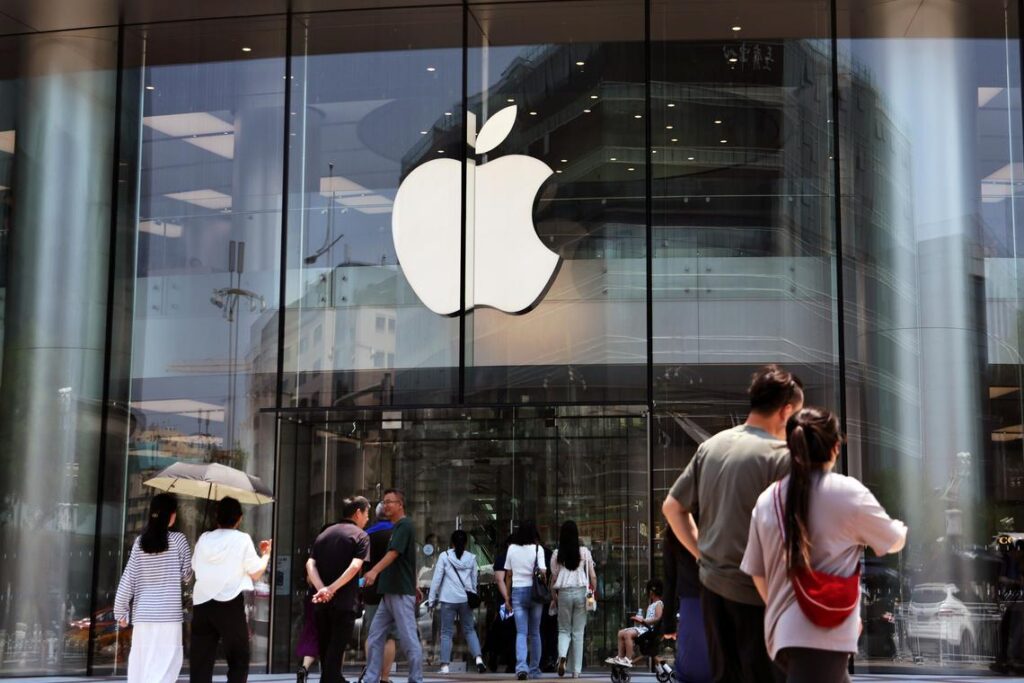Apple retail store closure in China marks a shift in global strategy.
Apple’s decision to shut down one of its 56 retail outlets in China indicates a strategic change as the technology company reconfigures its global retail presence. The California-based Fortune 500 entity has revealed that it will close its store located in Parkland Mall, Dalian.
Although the official reason for the closure has not been disclosed, industry sources suggest it may signify a shift in attention toward emerging markets with greater growth opportunities. As part of its expansion plans, Apple is preparing to open new flagship locations in India and the United Arab Emirates (UAE)—both regions witnessing a surge in demand for premium smartphones and services.

This move by Apple highlights a wider transformation in retail and consumer engagement strategies. While China remains an essential market for the company, its increasing interest in India—supported by local manufacturing and rising iPhone sales—reflects a long-term strategy for diversifying its market presence.
The closure of this Apple retail store in China occurs at a time when global technology companies are reevaluating their operations to adapt to changing economic patterns and consumer trends worldwide.
Apple has disclosed it will close its retail location in China, specifically in Parkland Mall, Dalian, on August 9. This marks the first store closure for Apple since it opened its inaugural shop in China back in 2008.
Nonetheless, the company stated that it aims to sustain its market share in China while also planning to open new locations in India, Saudi Arabia, and the UAE.

The closure is due to a rebranding initiative in the mall.
The reason cited for this closure is the evolving business climate within the mall, which has recently undergone rebranding as Intime City. Following this management change, numerous prominent brands have shut down their stores.
Apple explained that the decision was made following the exit of several retailers from Parkland Mall. The company noted that its second location in Dalian will continue to operate in Olympia 66 Mall, just a ten-minute drive from Parkland.
56 Apple Stores in China.
Despite the closure of one store, Apple clarified its intentions to remain active in the Chinese market. It operates a total of 56 stores across Greater China, which represent over 10% of its more than 530 global locations. In addition to China, Apple has plans to launch new stores in India, Saudi Arabia, the UAE, and Detroit.
Apple is emphasizing production in India.
The tech giant is redirecting its focus from China to India for iPhone manufacturing. A significant 78% of the iPhones sold in the United States are now produced in India. Market research firm Canalys reports that between January and June 2025, 23.9 million iPhones were manufactured in India, marking a 53% increase compared to the previous year.
According to Cybermedia Research, exports of iPhones from India (units sent abroad) grew to 22.88 million in the same timeframe. This is a noticeable increase from 15.05 million units produced in the previous year, reflecting a 52% annual rise.
Discussing financial aspects, iPhones valued at approximately 1.94 lakh crore rupees were exported from India during the first half of 2025. The corresponding figure for the previous year was ₹1.26 lakh crore.
India has surpassed China in iPhone exports to the USA.
In April 2025, 3.3 million iPhones were exported from India to the USA, while only 900,000 units were sent from China. Of the iPhones manufactured in India, 78% were directed towards the USA market—an increase from last year’s 53%.
The closure of the Apple retail store in China should not be interpreted as a withdrawal, but rather as a shift in focus. The company is likely redirecting its resources to areas where smartphone adoption continues to accelerate, and where there is an increasing demand for high-end technology. The UAE, characterized by its wealthy customer demographic, and India, with its large population and burgeoning middle class, both represent significant growth opportunities.
This strategic decision underscores Apple’s ongoing adaptability to global economic changes while aligning its retail approach with markets poised for future growth.





